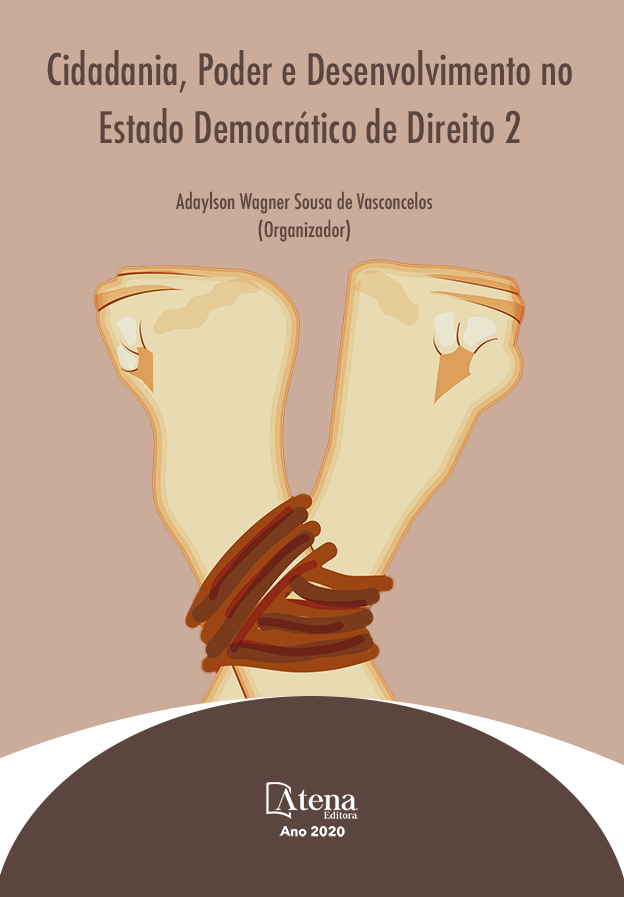
A NEGAÇÃO DOS DIREITOS HUMANOS NO ESTADO NAZISTA
A ideologia nazista praticada entre 1933 e 1945 pelo Partido Nazista da Alemanha foi tão cruel e desumana que ainda hoje percebemos o quão repugnante foram os crimes praticados neste período. A partir disso, estuda-se se aqui como as condutas dos nacionais-socialistas alemães feriram o princípio fundamental da dignidade da pessoa humana, tendo em vista que tais práticas violaram demasiadamente os direitos humanos ao ponto de provocarem a confecção da Declaração Universal dos Direitos do Homem, elaborada pela Organização das Nações Unidas. A teoria nazista de superioridade da raça ariana, que desvalorizava todas as outras, principalmente judeus, ciganos e homossexuais, foi concretizada em campos de extermínio e foram praticados na mais absoluta legalidade dentro dos ditames jurídicos da época, pois o positivismo jurídico contribuiu em muito para a manutenção das arbitrariedades praticadas por Hitler e pelo nacional-socialismo alemão. Foi criado o Decreto para a Proteção do Povo e do Estado, que previa, em síntese, a suspensão das liberdades civis e individuais, a pena de morte, a intervenção em Estados para garantir a ordem e a mudança no sistema da Constituição de Weimar para fechado e a criação do Ato de Habilitação que trouxe consequências que violaram diversos direitos coletivos e individuais, sociais e políticos. Após a Segunda Guerra Mundial, o mundo acordou para tamanhas atrocidades, tão bem representadas pelo holocausto e passou a demostrar aversão à negação dos direitos humanos marcados por duas guerras mundiais e pelo horror absoluto do genocídio concebido como projeto político e industrial realizado pelo então líder nazista Adolf Hitler. É neste cenário que se vislumbra o esforço de reconstrução dos direitos humanos, como paradigma e referencial ético a orientar a ordem internacional dos direitos humanos que embasaram o Tribunal de Nuremberg e a criação do Tribunal Penal Internacional.
A NEGAÇÃO DOS DIREITOS HUMANOS NO ESTADO NAZISTA
-
DOI: 10.22533/at.ed.8322027101
-
Palavras-chave: Direitos Humanos, Estado Nazista, Declaração Universal dos Direitos do Homem
-
Keywords: Human Rights, Nazi State, Universal Declaration on Human Rights
-
Abstract:
The Nazi ideology practiced between 1933 and 1945 by the Nazi Party of Germany was so cruel and inhumane that we still realize today how repugnant the crimes committed in this period were. Such practices have violated human rights too much to the point of producing the United Nations Universal Declaration on Human Rights. The Nazi theory of superiority of the Aryan race, which devalued all others, especially the jews, gypsies and homosexuals, was concretized in extermination camps and were practiced in the most absolute legality within the legal dictates of the time, since legal positivism contributed much for the maintenance of the arbitrariness practiced by Hitler and German National Socialism. From this, one studies whether, through their conduct, the German National Socialists have hurt the fundamental principle of the dignity of the human person. The Decree for the Protection of the People and the State was created, which envisaged the suspension of civil and individual liberties, the death penalty, intervention in States to ensure order and change in the Weimar Constitution system for and the creation of the Habilitation Act that brought consequences that violated various collective, individual, social and political rights. After World War II, the world woke up to such atrocities, so well represented by the Holocaust and began to show aversion to the denial of human rights marked by two world wars and the absolute horror of the genocide conceived as a political and industrial project carried out by the then Nazi leader Adolf Hitler. It is in this scenario that the effort to reconstruct human rights is seen as a paradigm and ethical reference to guide the international order of human rights that underpinned the Nuremberg Trial and the creation of the International Criminal Court.
-
Número de páginas: 21
- Francisco Lucas de Lima Fontes
- Izabelle Carvalho Lima
- Raimundo Jucier Sousa de Assis
- Enedina Gizeli Albano Moura


